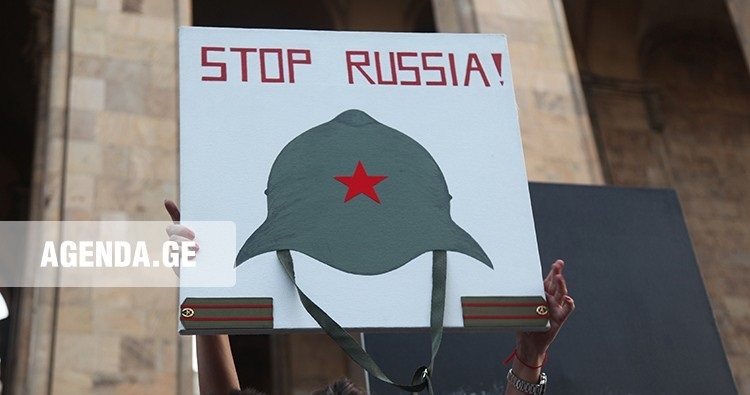OSCE PA human rights committee deeply concerned by continuous ‘borderisation’ in Georgia

The committee Chair Kyriakos Hadjiyianni, Vice-Chair Michael Georg Link and Rapporteur Susana Amador condemned "borderisation" in a joint statement on August 22. Photo: Nino Alavidze/Agenda.ge
Leaders of the OSCE Parliamentary Assembly’s (OSCE PA) human rights committee condemn the “illegal erection of fences and barriers” in Georgia and call upon “the respective authorities" to remove the fence from the village of Gugutiantkari, in Gori Municipality.
The committee Chair Kyriakos Hadjiyianni (Cyprus), Vice-Chair Michael Georg Link (Germany) and Rapporteur Susana Amador (Portugal) have expressed their concern in a joint statement today. They said that the resumption of “borderisation” process “not only entrenches the conflict but impacts the life of the local population”.
Building fences without notice through villages, depriving people of the access to their farmland, ancestral homes and effectively their livelihoods, is simply unacceptable”, the OSCE parliamentarians said.
The further noted that “ensuring the freedom of movement of people, who must deal with the consequences of the conflict on a daily basis, is of vital importance to maintain people-to-people contacts and minimize the impact of the conflict onto their lives”.
OSCE PA human rights leaders deeply concerned about the continued ‘borderization’ process in Georgia and its impact on local residents https://t.co/wrlZdFUkxR @KHadjiyianni @michael_g_link @SusanaAmador
— OSCE PA (@oscepa) August 22, 2019
The human rights committee leaders also said that “up to 40 kilometers of barbed wire fence” that has been constructed along the Administrative Boundary Line (ABL) line with Tskhinvali region, creates “a physical barrier within several villages and hindering residents freedom of movement”.
Russian occupation forces started to erect artificial barriers in the village of Gugutiantkari, in Gori Municipality, close to the Russian occupied Tskhinvali (South Ossetia) region on August 7. The Georgian Foreign Ministry has called on the international community to take “effective measures to stop illegal activities of the occupation forces” in Georgia.
 Tweet
Tweet  Share
Share